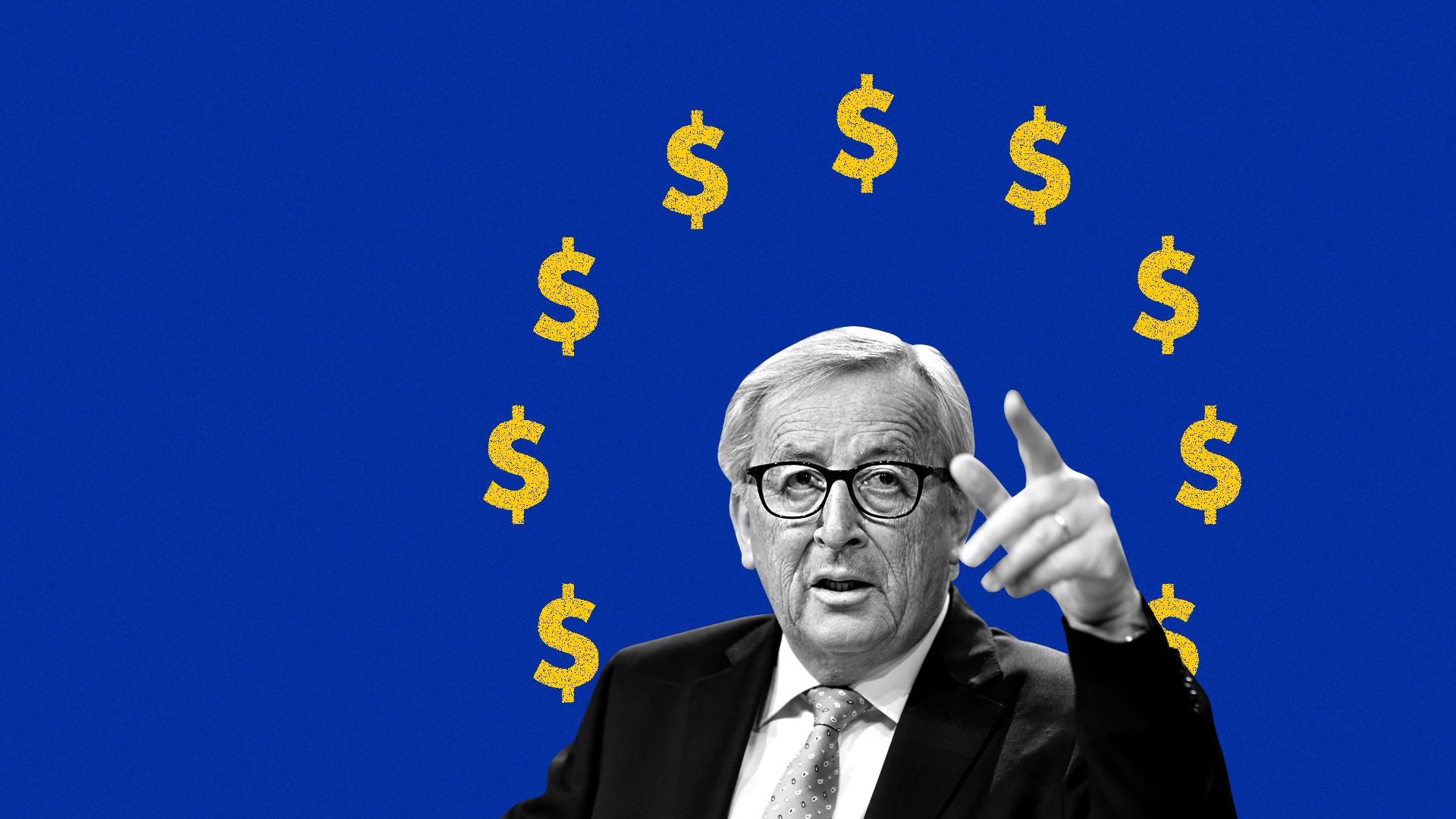Europe's Jean-Claude Juncker is saving free trade
Add Axios as your preferred source to
see more of our stories on Google.

Illustration: Lazaro Gamio/Axios
As the U.S. has abandoned its role as a champion of global free trade, European Commission President Jean-Claude Juncker has quietly been cutting deals around the globe, bolstering free trade pacts and international cooperation many feared (or hoped) were dying in the age of Trump.
What's happening: At this weekend's G20 summit all eyes were on Trump and Xi's agreement to relax further trade war escalation. But perhaps lost in the shuffle was the official announcement of two major trade deals by the EU, with Vietnam and the Mercosur alliance, a bloc that includes Brazil and Argentina, South America's largest economies.
Details: The agreements with Vietnam and Mercosur follow recent accords the EU has signed with Canada, Japan, Mexico and Singapore.
- The deals cover trade of goods and services valued at nearly $600 billion a year, which is about half the value of trade between the EU and U.S.
"This deal is a real message in support of open, fair, sustainable and rule-based trade," Juncker said of the Mercosur agreement during a news conference on the sidelines of the G20.
- The EU had been in negotiations with Mercosur over this agreement for 20 years.
- New deals with Vietnam and Singapore will give Europe a major footprint in Asia and serve as a stepping stone for a regional agreement, Juncker said.
What's next? There is a good chance for the EU to ink an agreement with the Pacific Alliance, Latin America's other major trading coalition that includes Mexico (with whom the EU has a separate deal) as well as Peru, Colombia and Chile.
- Mercosur and the Pacific Alliance account for 93% of Latin America's GDP.
The big picture: The EU also is in prime position to supplant the U.S. in the abandoned Trans-Pacific Partnership, having now secured trade deals with the agreement's major players. TPP was picked up by Canada and Japan, re-labeled TPP-11 (or TPP-minus-the-United States), and signed in December, but lacks a major world power.
- The deal was intended to strengthen ties between Pacific countries from Asia to Latin America with the U.S. to curtail China's growing dominance.
The bottom line: With the world's two largest economies weakening each other through a potentially protracted trade war, Juncker's dealmaking has put the EU in position to take the reins on the future of global trade, and given fresh legs to hopes for globalization and liberalized international trade.
Go deeper: Free trade comes to Africa
